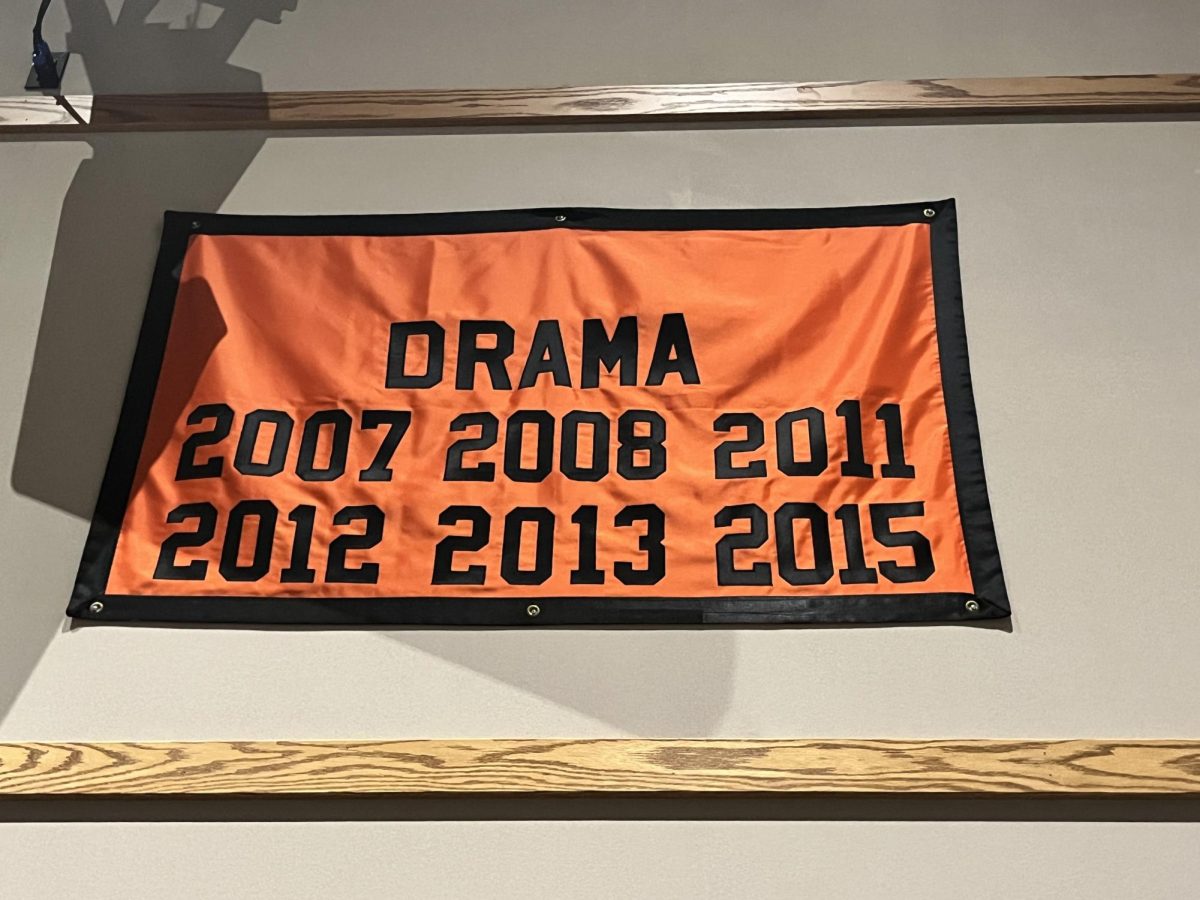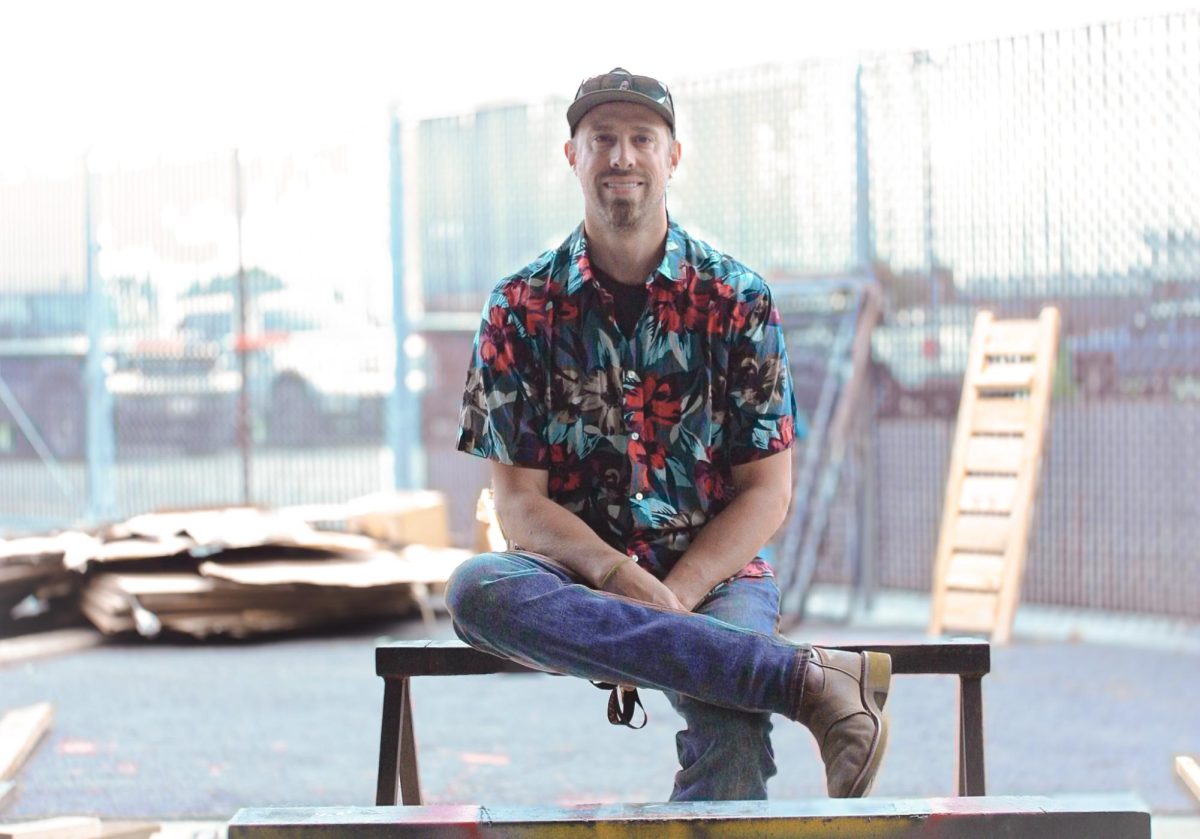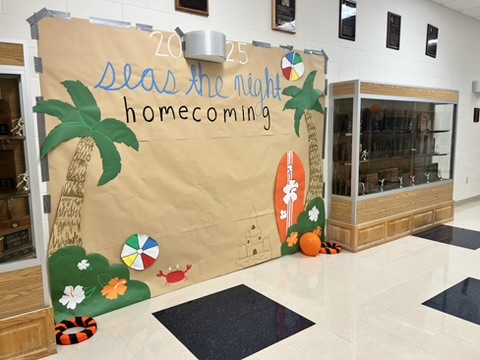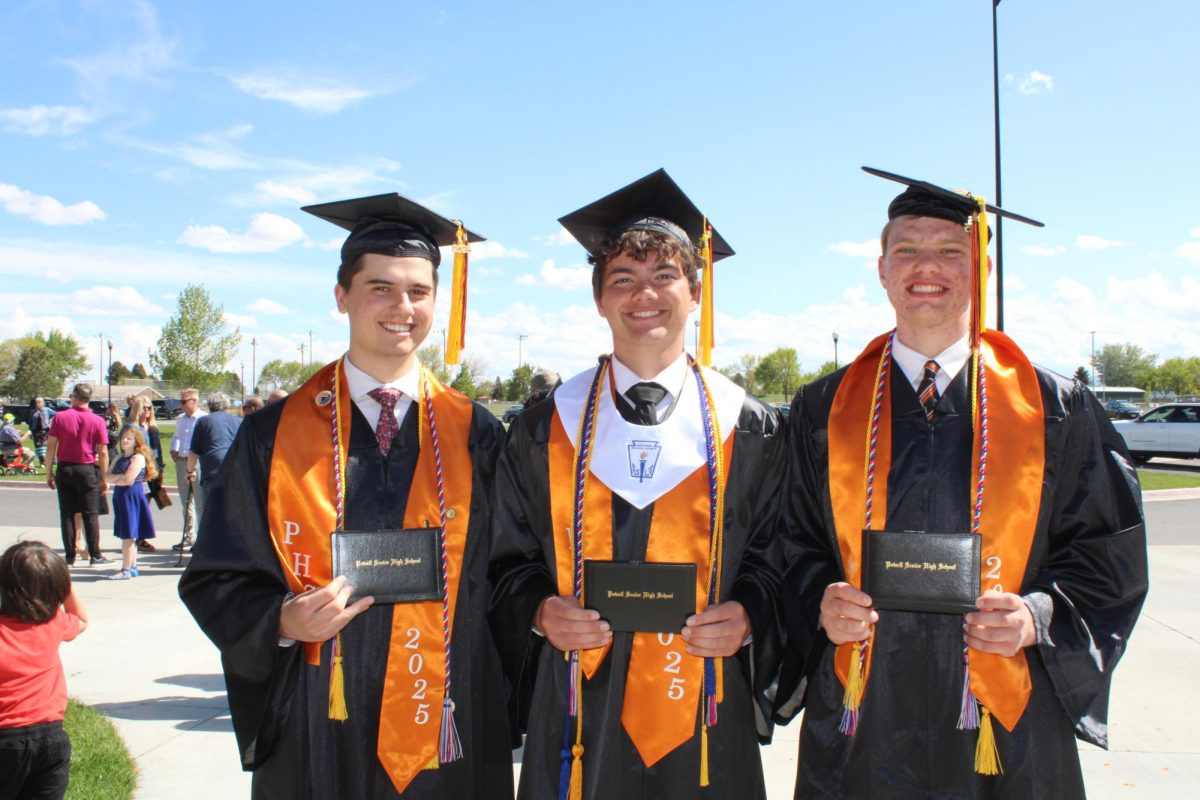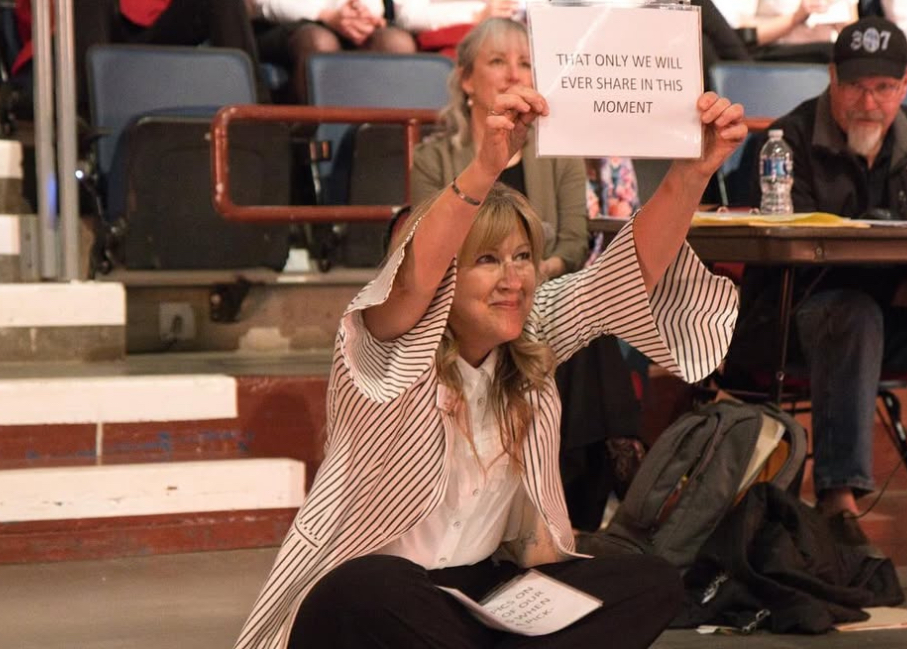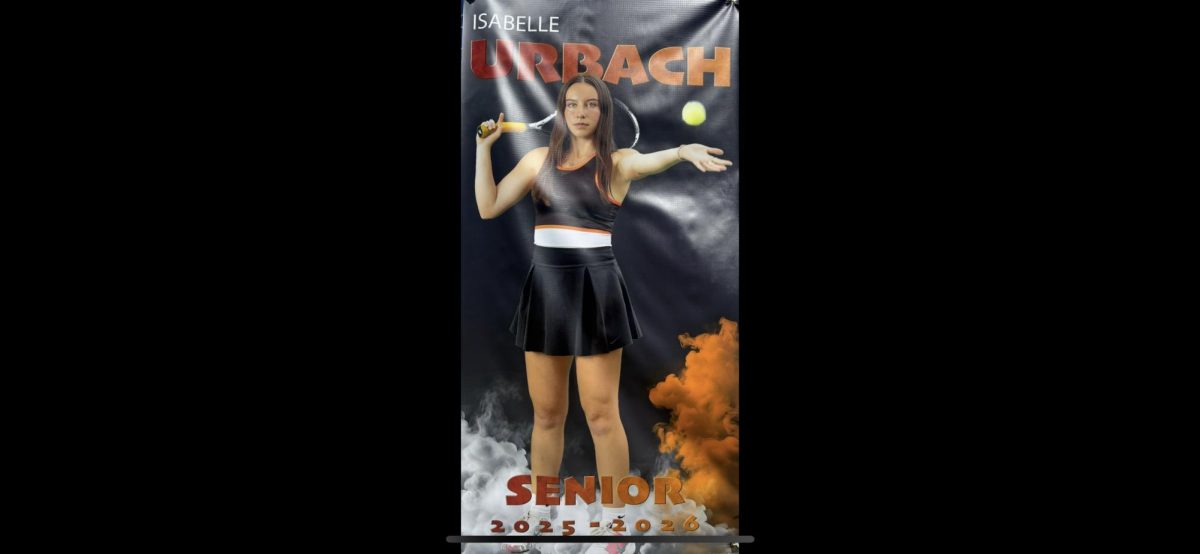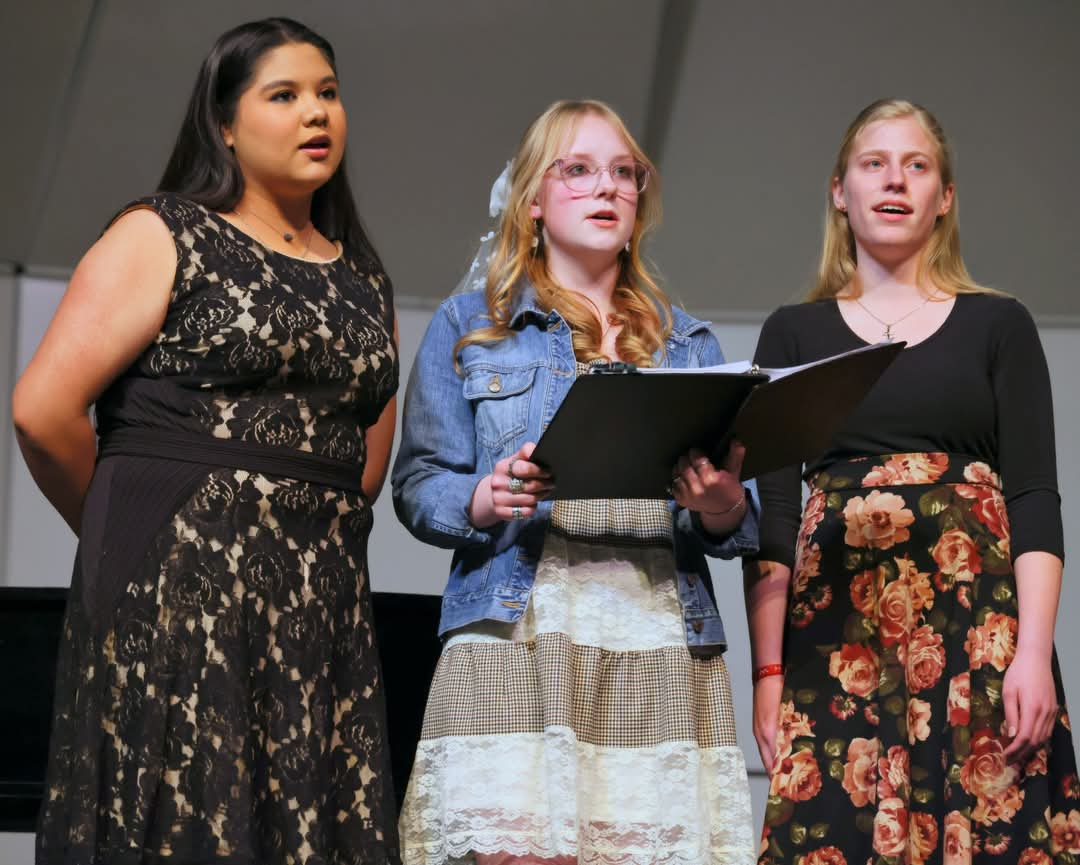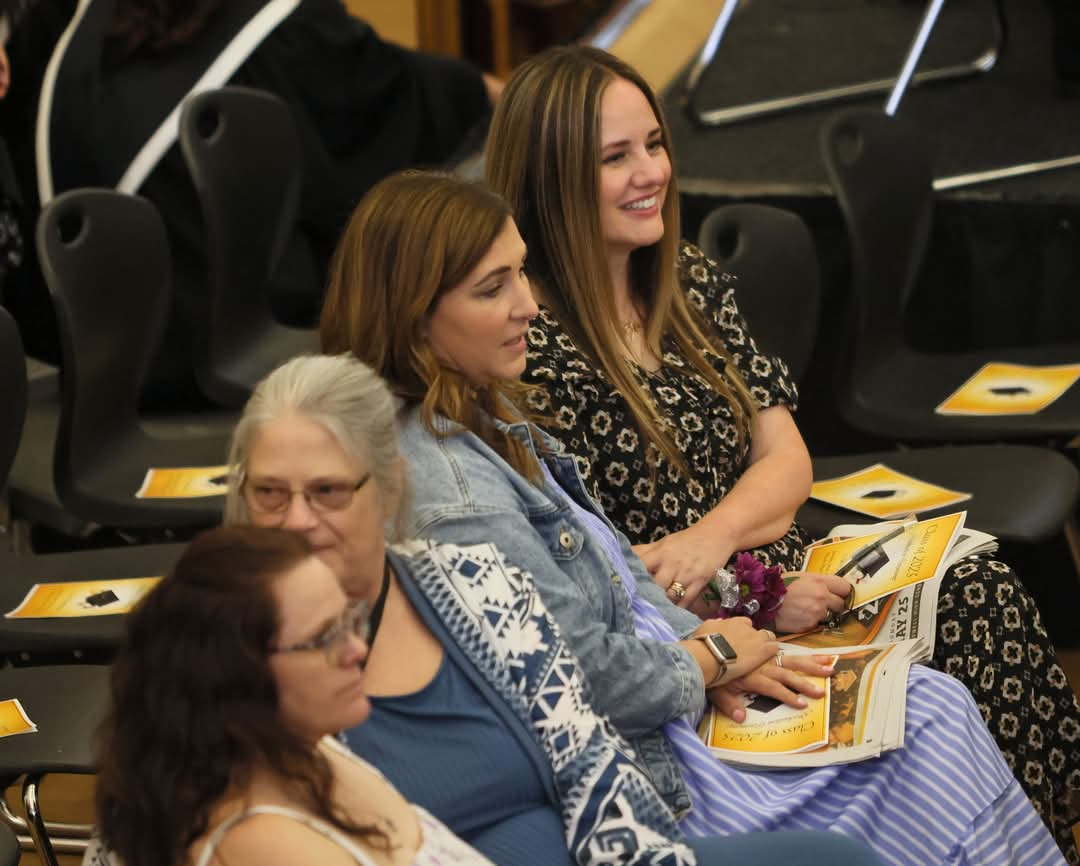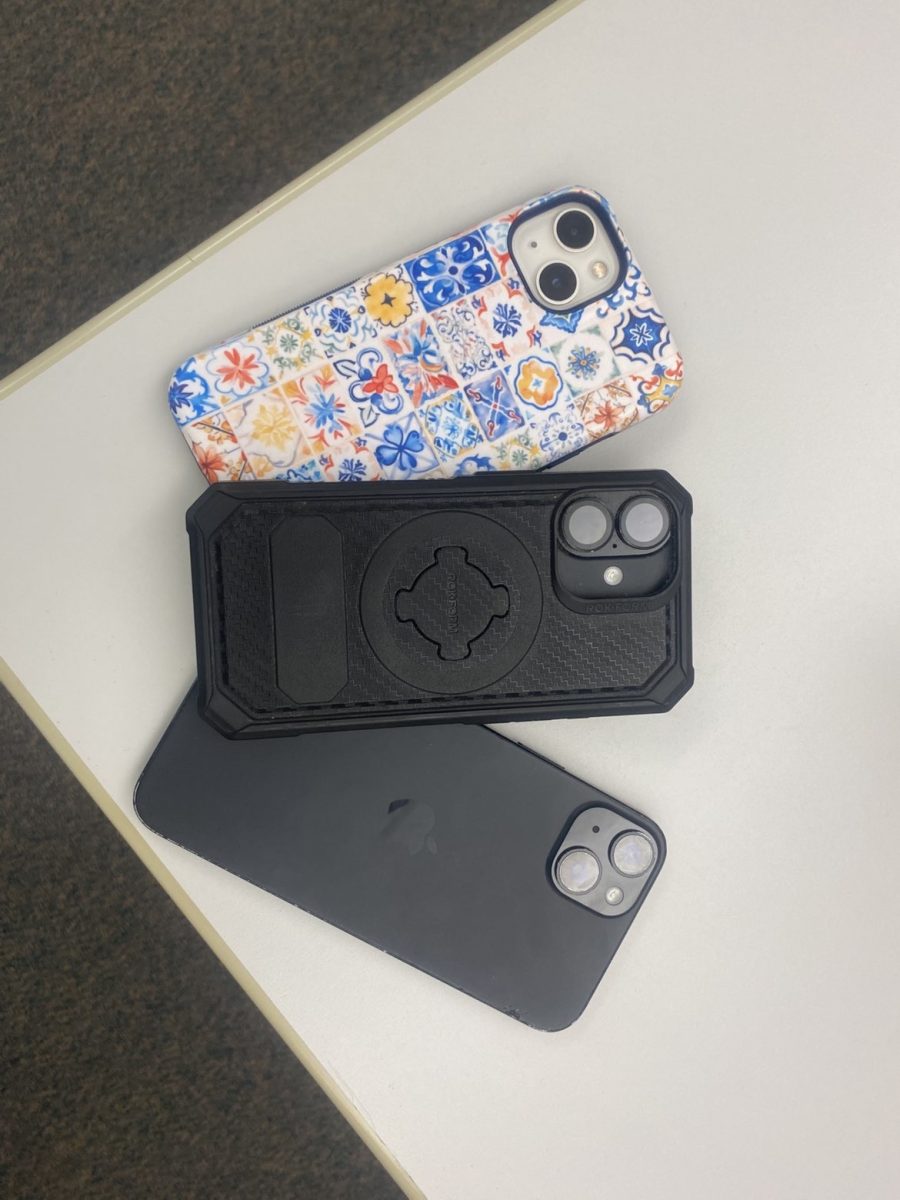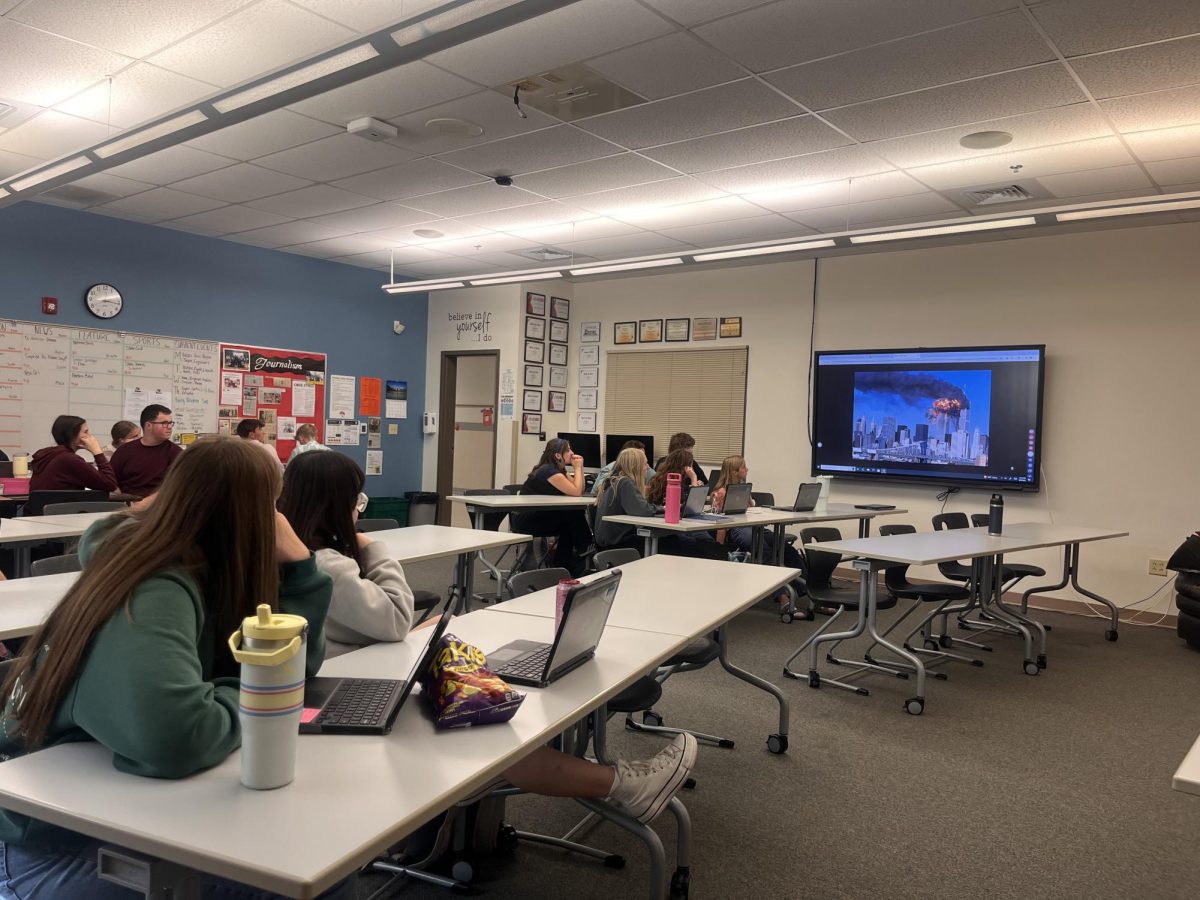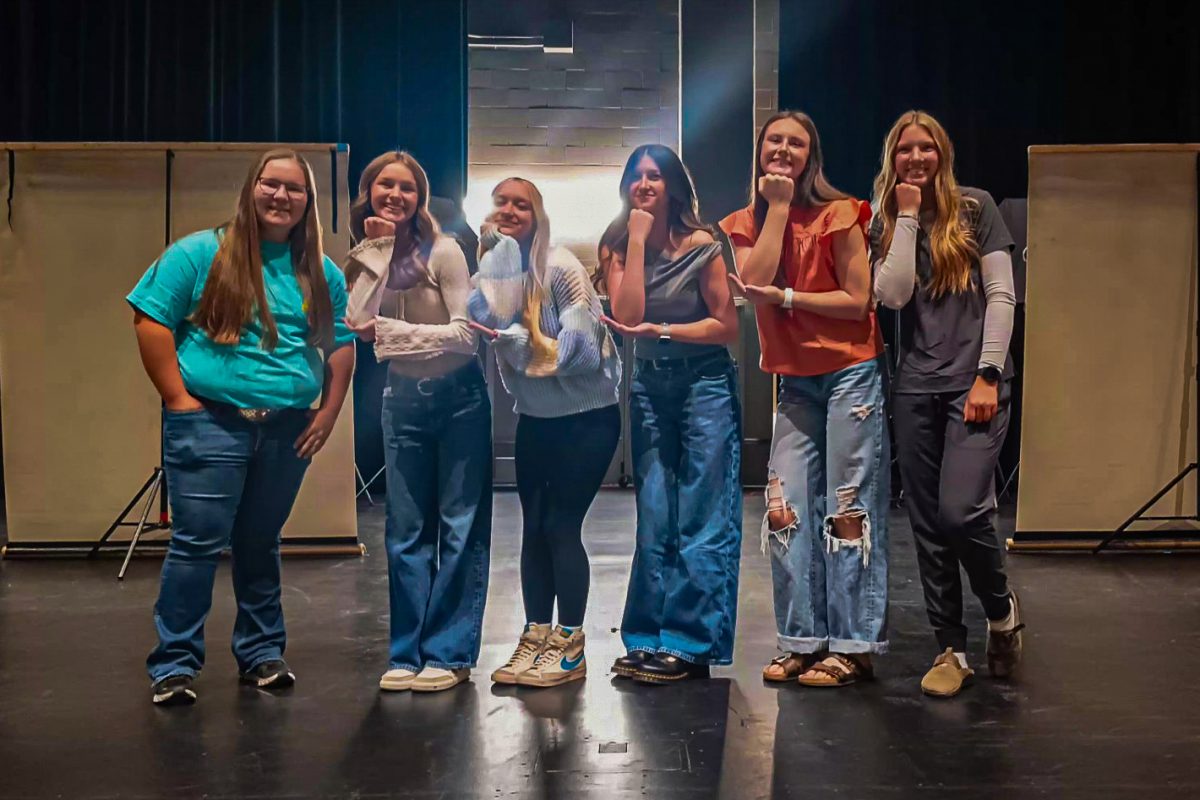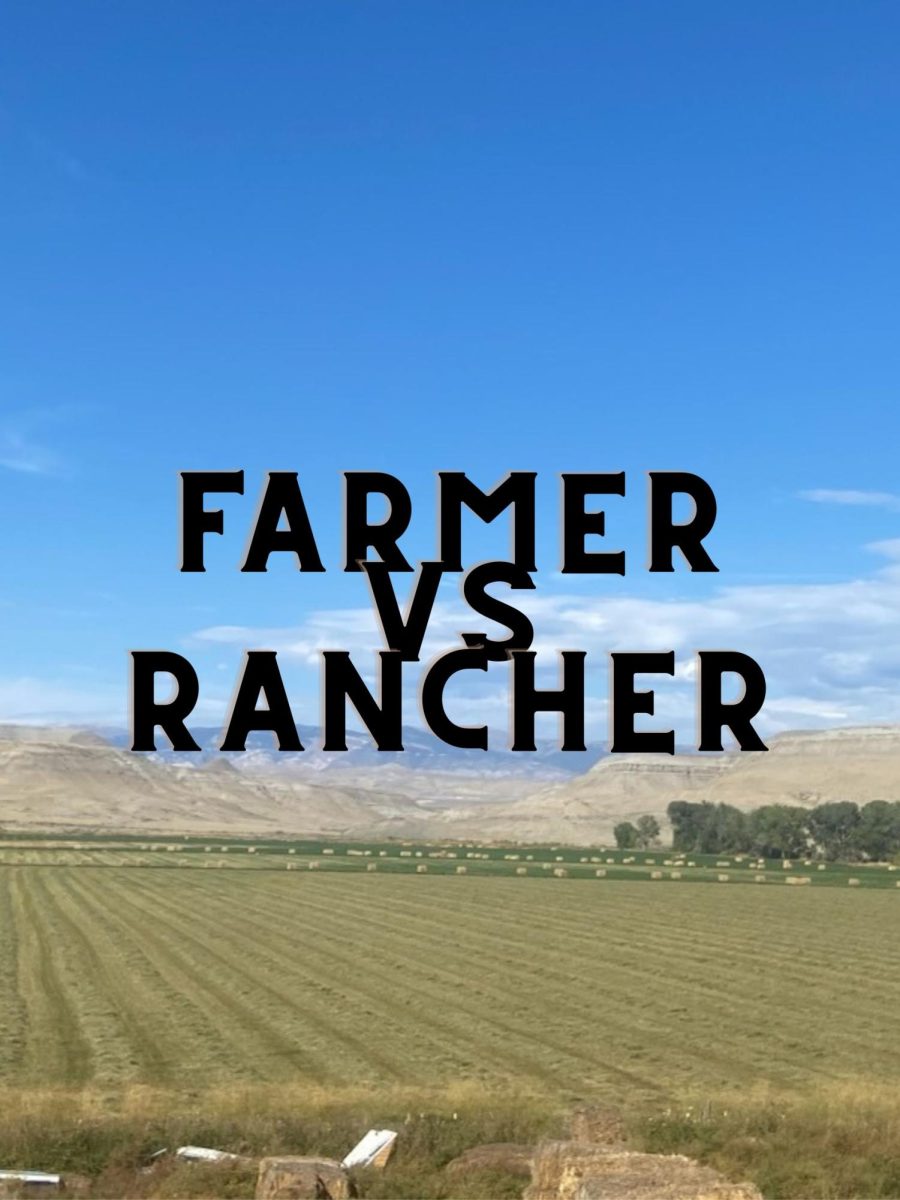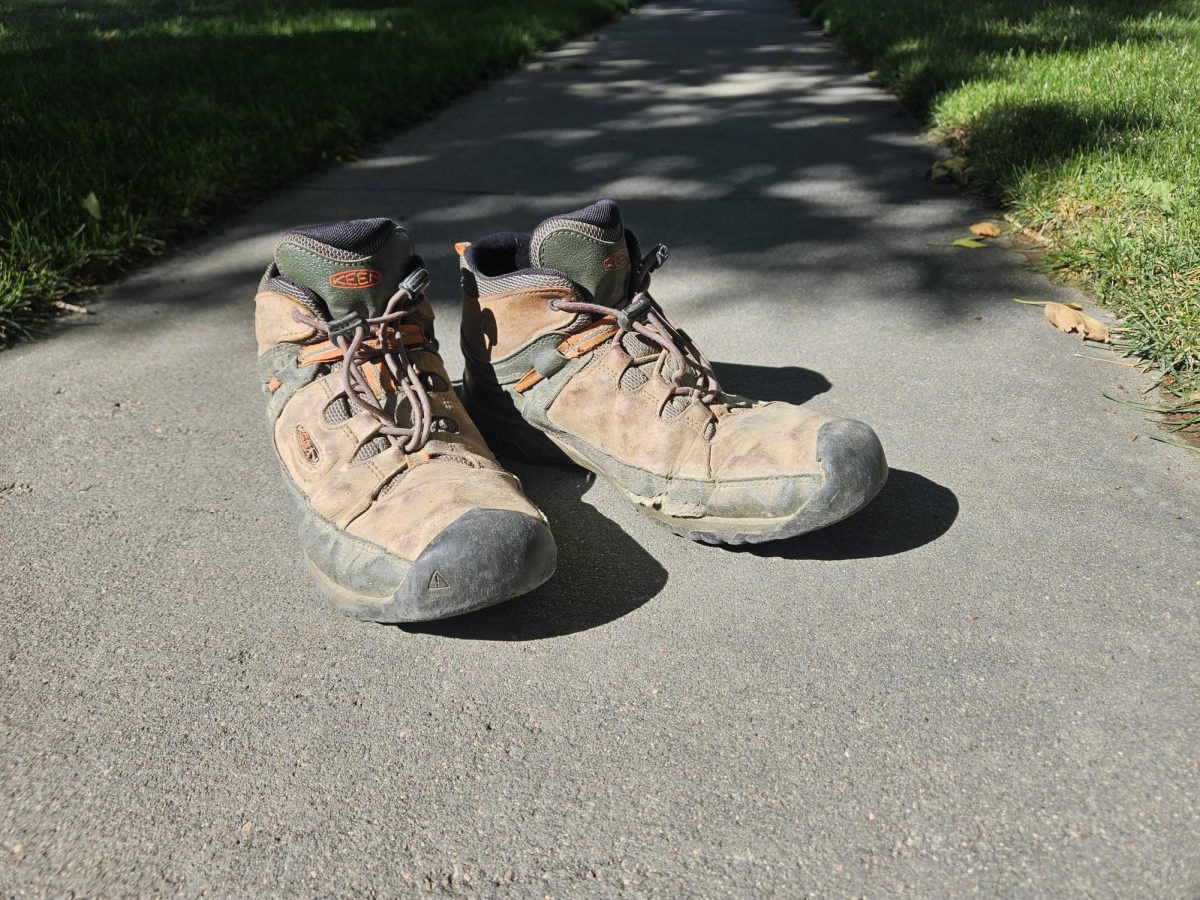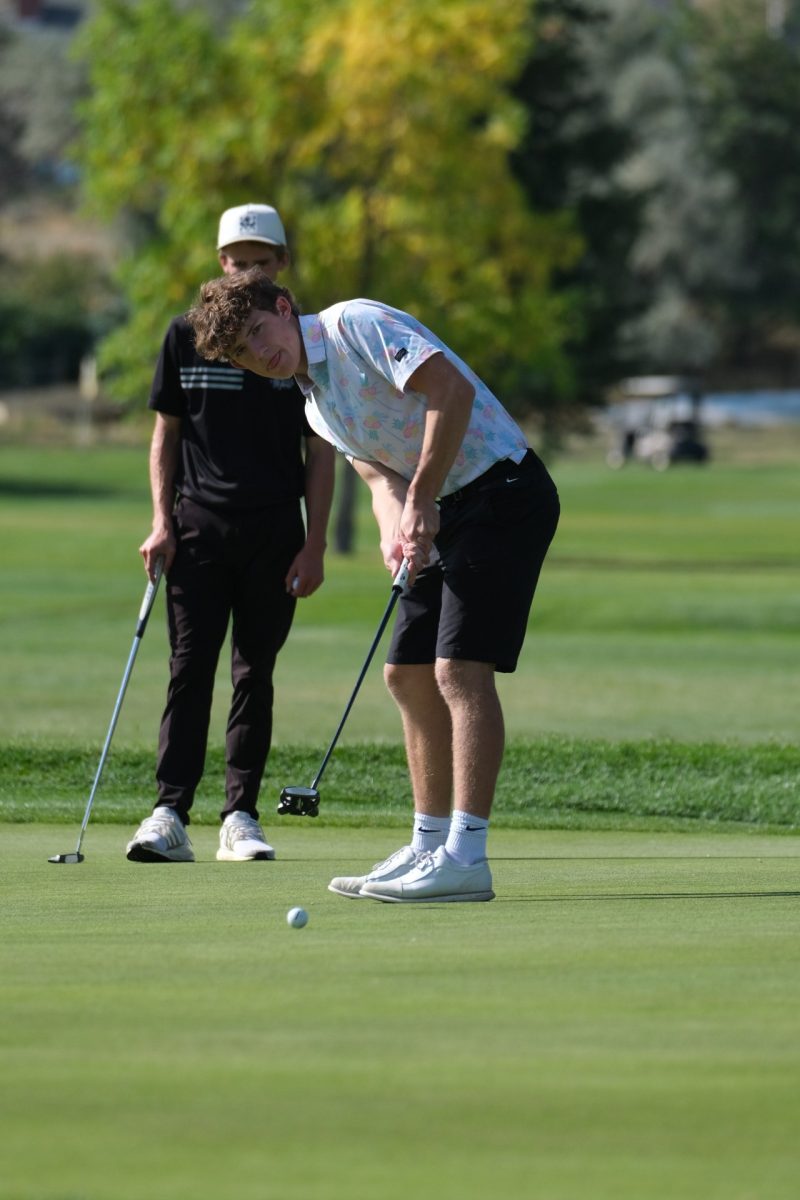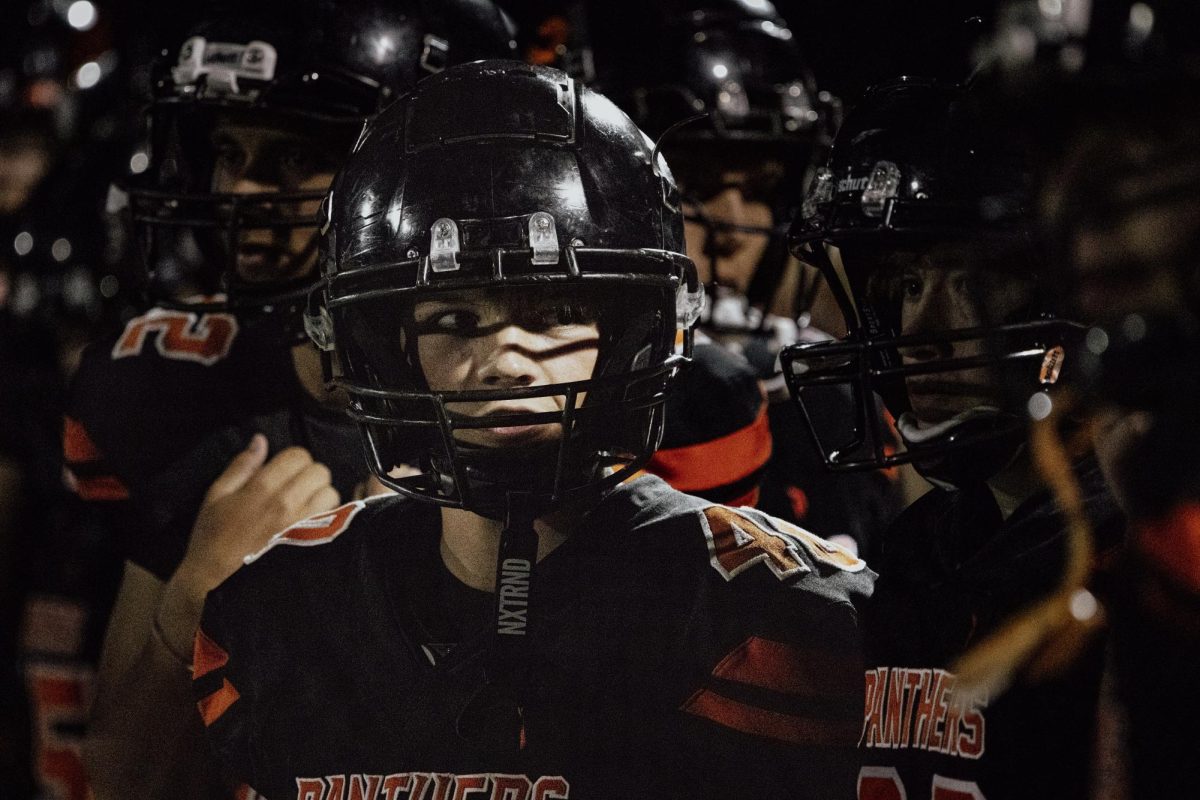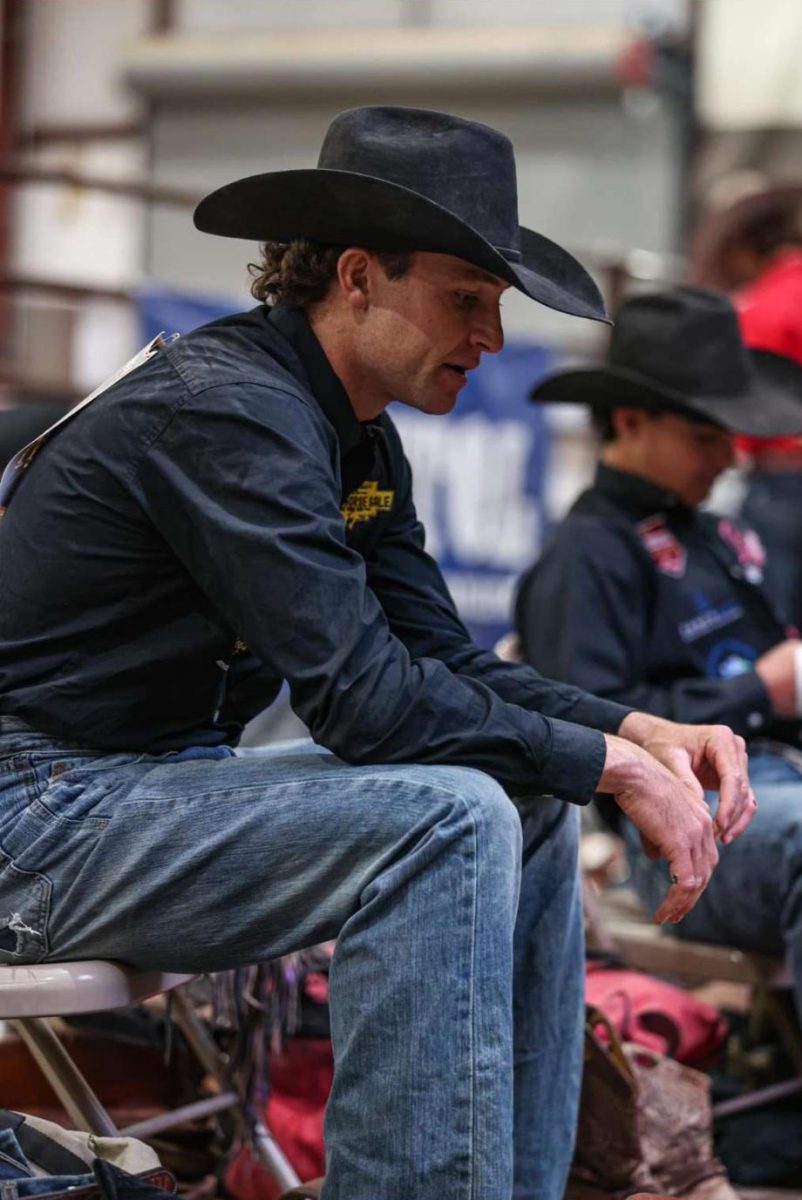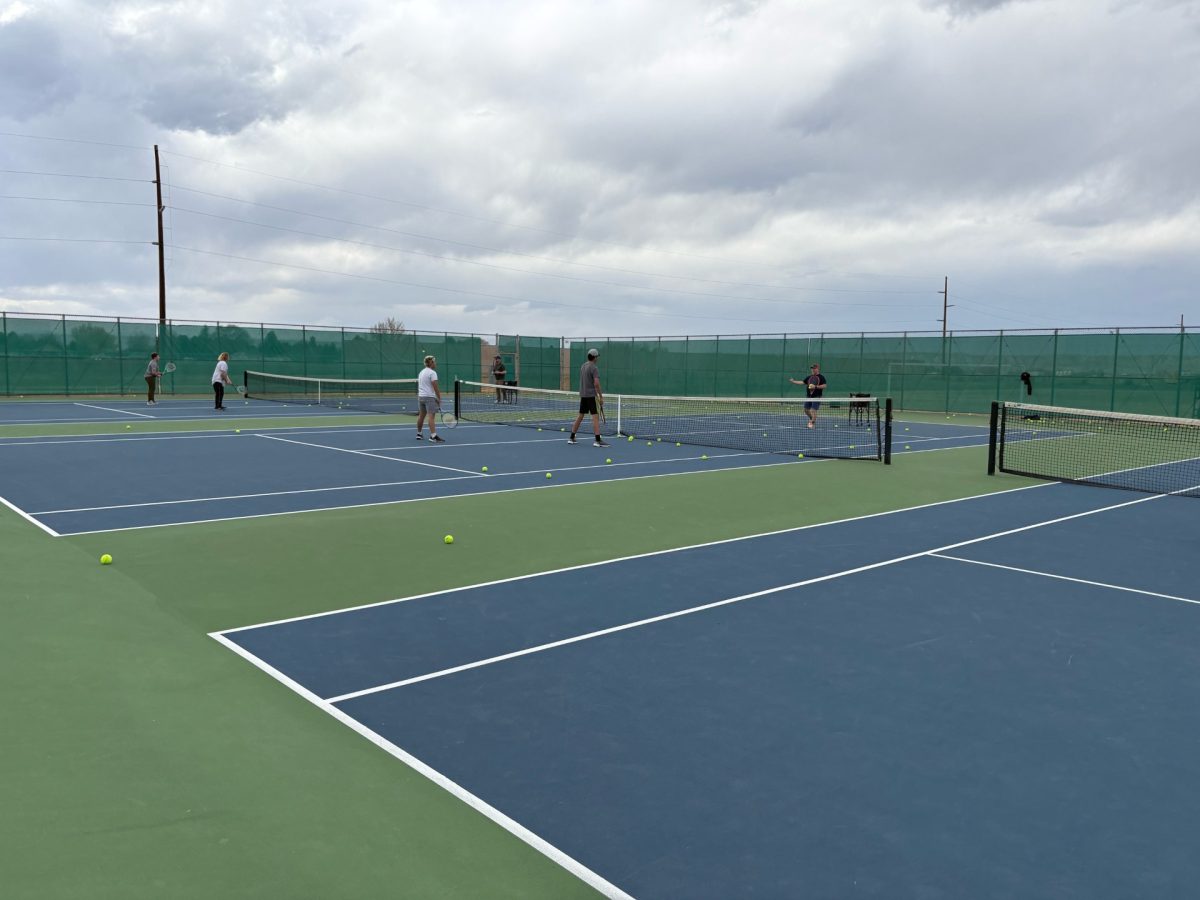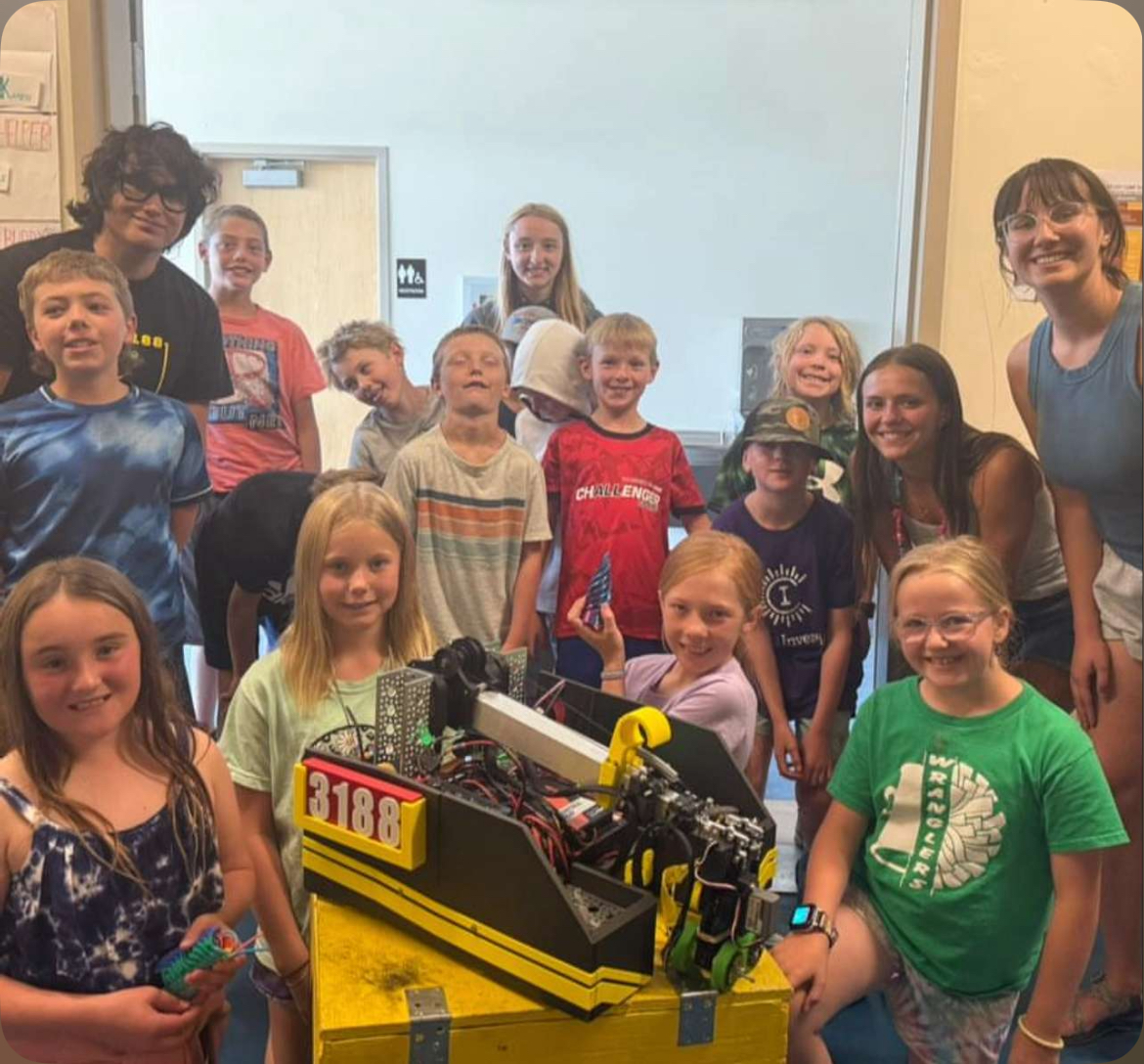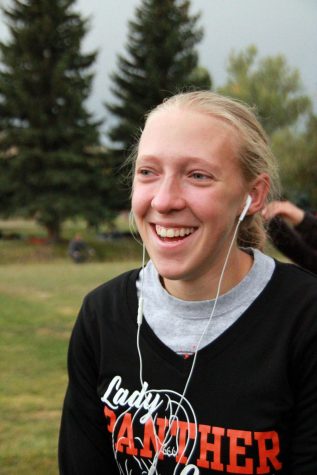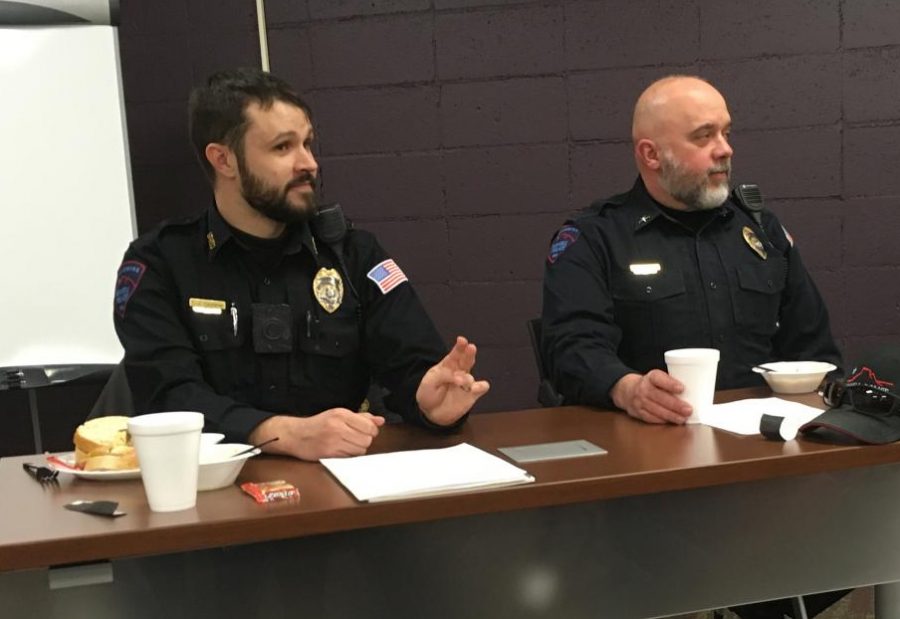STRAIGHT SHOOTER
SRO Carpenter fields questions from students about law enforcement, drugs, life of a police officer
School Resource Officer Mr. Trevor Carpenter (left) and Chief of Police Mr. Roy Eckerdt answer questions from Powell High School students in the community meeting Feb. 6.
Powell High School students were recently offered the chance to ask Powell Police Officers any questions they could think of.
The purpose was to give students who never felt comfortable or safe asking a question in person a chance to anonymously submit their question to be answered. Around 20 questions were submitted by students on Tuesday, Feb. 5, and most, excluding the multiple questions asking about the officers’ favorite kind of donuts, were printed and discussed Wednesday, Feb. 6.
PHS juniors Kaitlyn Church and Ashlyn Aguirre sat in conversation with School Resource Officer Mr. Trevor Carpenter and Chief of Police Mr. Roy Eckerdt. Some 19 community members, mostly representatives from Powell businesses, also joined the discussion. For the most part, Officer Carpenter answered the questions, with Chief Eckerdt occasionally adding to his statements.
QUESTION: What do you do when there aren’t any crimes happening?
ANSWER: “My job as the school resource officer is to investigate crimes in the high school,” Officer Carpenter said. “If there is no crimes I wear many hats. I am law enforcement but I can also be a teacher, mentor, a friend if need be. I like to just jump in classrooms when I can. I hold programs, talks with kids on different topics that teachers want me to address. Just last week I was in Southside for street safety. How to cross a street with our little ones. If I’m not doing programs like that I like to jump in PE classes [and] play PE with the students.”
Q: What do you think the biggest tip for us is when it comes to making good choices even when we are surrounded by people who are bad influences?
A: “One of my favorite classes was criminology, studying why people commit crimes,” Officer Carpenter said. “One of those theories is peer pressure. My favorite [theory] is freewill. We know the decisions that we make and we know the consequences of them and we have that decision of if we want to do it or not. So my biggest tip is if you have friends out there that are pressuring you to do something that’s illegal or wrong, it’s on you guys to make the decision. That doesn’t make it easier or harder for you but you guys need to realize what they’re asking of you and make that decision for yourself.”
A community member in attendance added, “Doing the right thing isn’t always easy.”
Q: Is it OK for a principal to search a student without law enforcement or a probable cause?
A: “The way I work with the schools here is I let the schools investigate their stuff first then get me on board,”Officer Carpenter said. “So yes, a principal can search a student if they believe, reasonably believe they have something that’s
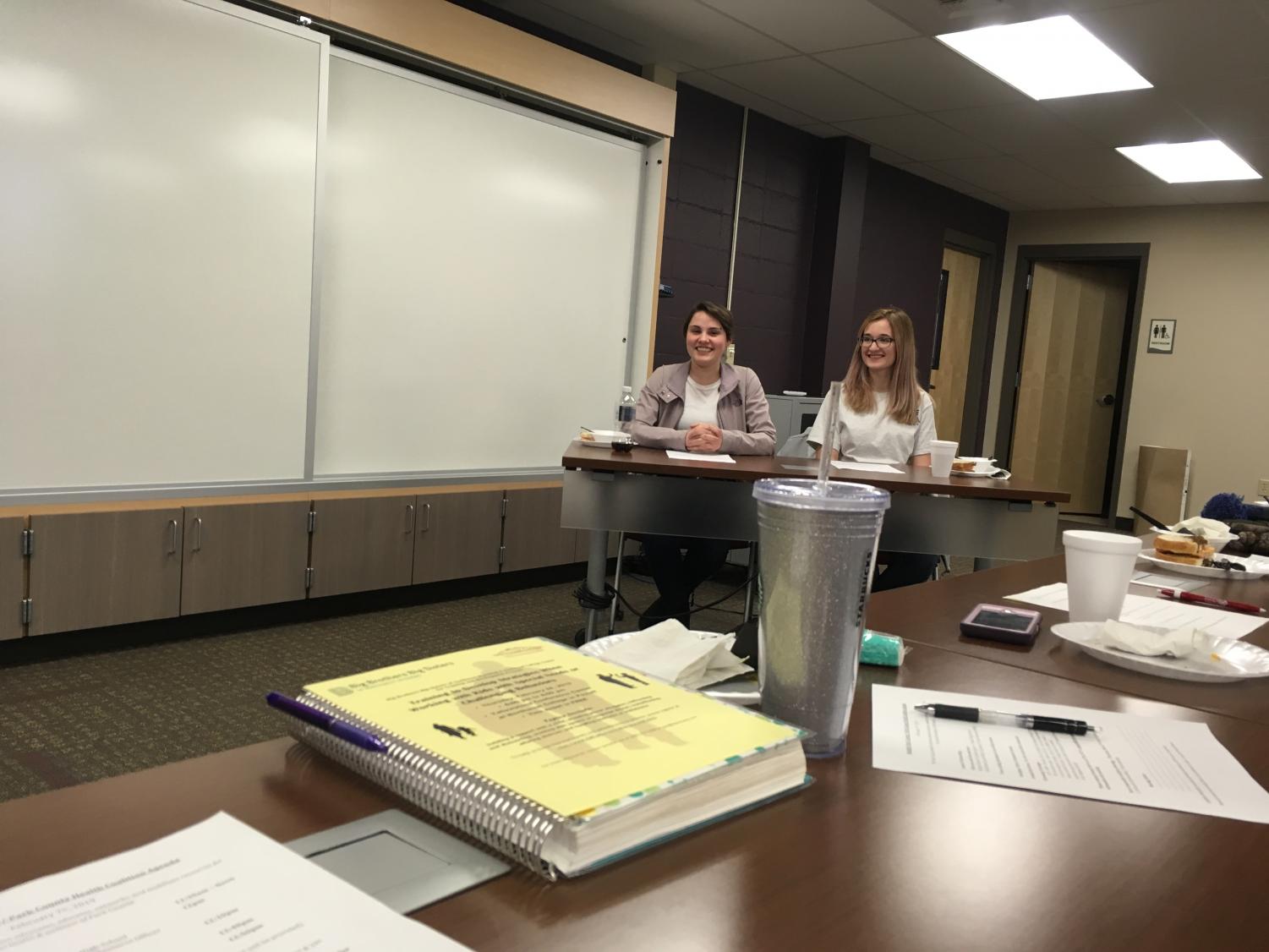
violating the handbook and to figure out if they have it or not for the safety of students at home.”
But probable cause is different from reasonable suspicion.
“Probable cause is what we use in law enforcement to search, to arrest, whether it’s a warrant or not,” Officer Carpenter said. “The case law for school officials is actually reasonable suspicion. It’s actually lower than probable cause.
Q: Why do you guys seem to pay more attention to kids who have been in trouble with the law before but have dealt with their problem already?
A: “Part of law enforcement is sometimes, we are the consequences of someone’s decision,” Officer Carpenter said. “[This could involve probation] On probation their conditions are they are not to break any laws and they have maybe sometimes more strict conditions. My job is to try and get kids to succeed. If they’re on probation or they’ve been in trouble before, yeah, I’m going to keep any eye on them a little more to make sure they are on the straight and narrow because I want them to succeed. If we’re on probation and no one checks in and we continue to do the things that got us in trouble in the first place, are we learning our lessons? Are we learning from our mistakes?”
Q: Isn’t there worse crimes to be worried about rather than high-schoolers?
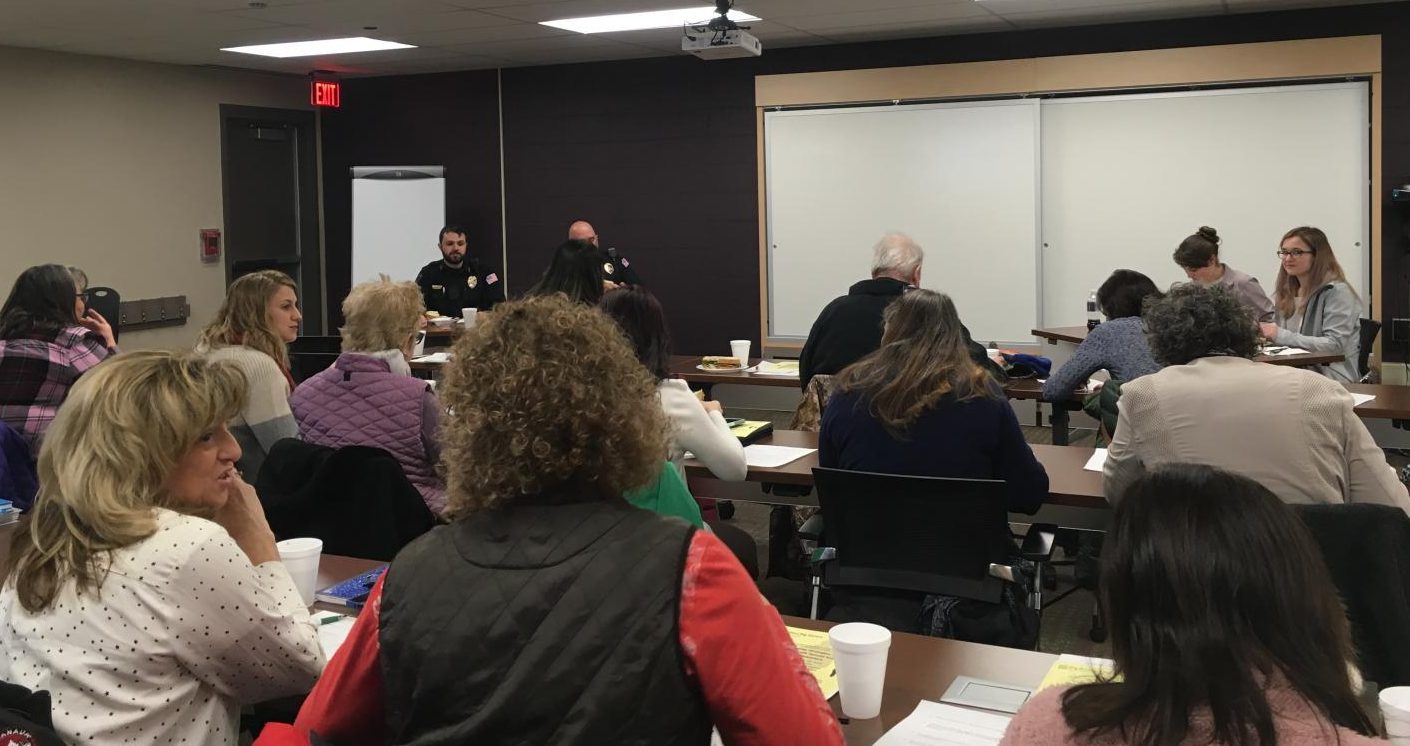
A: “My focus right now is the high school,” Officer Carpenter said. “This day and age, though, you guys can probably see in the media is there’s a lot of serious crimes high-schoolers, juveniles are committing. So yes, there are serious crimes that happen outside of schools. My focus is inside of the schools compared to an officer who’s out in the street right now.”
Q: Why can’t you give us a ride home instead of a ticket?
A: “So that one falls back to consequences,” Officer Carpenter said. “Are students going to learn what their decisions are, that they’re not OK if I just give them a ride home?”
Q: Do you believe speeding is a danger to anyone on the road?
A: “Yes, I do,” Officer Carpenter said. “More importantly when it’s cold out and there’s icy roads. Speeding a safety issue, not only for our students for school zone times to residential zones where kids play out on streets all the way out to the highways where we have cattle. If we’re going above the speed limit the risks of getting hurt, getting someone else hurt goes up more the faster your go.”
Q: On average how many times do you risk your life in a year?
A: “I would say every day,” Officer Carpenter said. “With our community we have great support so I feel very comfortable being law enforcement here in Powell. There’s people out there who see this badge as I see it — as a symbol of hope and protection, but there’s people out there who see it as the enemies. Even though its little Powell, all across this nation there’s ‘little Powells’ where law enforcement do lose their lives.”
Q: Why do you do what you do?
A: “I like to help people,” Officer Carpenter said. “I was a lifeguard in high school. I had to opportunity to actually jump in and save kids and that’s where this idea of law enforcement actually came from. I like to be that guy; if someone’s in need they can look at me and say he’s going to help me.”
Q: Is there an average amount of times an officer will get shot in their career?
”I think there’s probably a little bit of facts out there,” Officer Carpenter said. “A high majority of law enforcement officers will never be put in that situation. But it’s always different. The chances of getting hurt in a really big city is probably more than a small town officer, but there’s really no number or average out there.”
Q: What do you think is bad about marijuana?
A: “A lot of things,” Officer Carpenter said. “Anywhere from I don’t like the smell of it … to the point where it’s addicting. It changes how your body functions and I see, through addiction, people sacrifice their money, family, friends to the point where they want that drug more than more important things. There is research out there showing that it affects your brain, so it’s actually changing how we process things, how we can grow.”
Q: What is the hardest/best/worst part of being a police officer?
A: “For me the hardest and worst is death notifications,” Officer Carpenter said. “Whether that’s telling a 50-year old person that their 89-year-old mother/father’s passed away. Whether that’s in person or over the phone. Or to tell a parent that your son’s gone or your daughter’s gone because of suicide or because they were speeding too fast going on the highway and they don’t grasp the reality of how final death is.
“The best part is just interacting with the community and trying to be a good role model. I put myself in a position where I can help people.”
Q: Why are speed limits so low?
A: “I think they’re just where they need to be at,” Officer Carpenter said.
Q: Have you ever had to use your gun?
A: “[Have I had to] fire my pistol? No,” Officer Carpenter said. “Have I been in situations where I’ve had my pistol out? Yes, whether that’s on someone I think is any immediate threat to me or other officers or the public. Or to the point where we have an open door and we go in and we clear houses. We have our guns out just for the unknown. So I’ve had my gun out, I’ve used my gun a handful of times, but to the point of firing it? No, other than training.”
A: Can I pick up an empty cigarette box and throw it away without getting in trouble?
A: “It depends on the situation,” Officer Carpenter said. “If it’s an empty cigarette box and you throw it directly away, then no. The box itself is not illegal. The cigarettes, the tobacco, a vape pen, anything that has an illegal substance in it; if there’s something in it, then yes.
“If I see a student walking with a cigarette box and their intention is to throw it away but I see them walking with it, I’m going to talk to them, I’m going to investigate because if they’re underage and I see that box, I’m going to think that they have cigarettes in that box. I’m going to investigate further. If it is empty and they say I was just going straight for that trash can, I’m probably not going to go further than that.”
A: What is the No. 1 piece of advice you would give someone considering becoming a cop?
A: “It’s the reason why you want to join,” Officer Carpenter said. “You’re exposed to a lot of evil; you’re exposed to a lot of bad things. It’s hard to deal with; it’s hard to cope sometimes. But you’ve got to be in it for the right reasons and that’s to help people, to support people. Try to improve our community. So if someone has that drive to be a police officer for those things then I think if you have that drive then you’re already a step above a lot of people. If you’re in it for money or you’re in it for the glory of being a police officer, then you’re going to be exposed to a lot of stuff and the chances of you not being a police officer or you struggling is a lot higher.”
Q: Are you more lenient towards teens than others?
A: “Depends on the situation,” Officer Carpenter said. “No one’s above the law, so even teens can get in trouble. Depending on the situation, yeah, I’m not lenient at all. So our zero-tolerance underage drinking; that’s how we deal with it, we’re zero-tolerance. For example, maybe if a student is driving their parents’ vehicle and they forget to get it registered, I have some discretion. Am I going to cite that student because a parent failed to register their vehicle? That’s somewhere I can use a little more discretion on. It just depends on what the crime is and how we got there.”
Q: What’s the difference between a PI and a cop?
A: “As a police officer, we have the authority through state, federal to enforce the laws,” Officer Carpenter said. “A private investigator is hired by someone in the community to investigate someone. Usually you see PIs on TV shows where they help find, if, say someone’s adopted, they help find the parents through a kind of trail that they find themselves. Or something along those lines. So they’re being hired by the public to do something, but I don’t know if they actually have to authority like law enforcement does to enforce the laws.
“Police officer is sworn and certified through the state, employed by the agency and operates under the policy and procedures to how those things are done,” Chief Eckerdt added. “A private investigator filed an application with the state and got a license to do it. So therefore they have no power to arrest any more than any other citizen. So the authority is still the police officer.”
Q: Have you ever done anything illegal in your life and if yes, what?
A: “I am human,” Officer Carpenter said. “I’ve made mistakes in the past. Some, I wouldn’t say super frequent, ones are traffic violations. Sometimes I don’t see that stop sign. Not so much on duty, but as a human being if I get distracted.”

